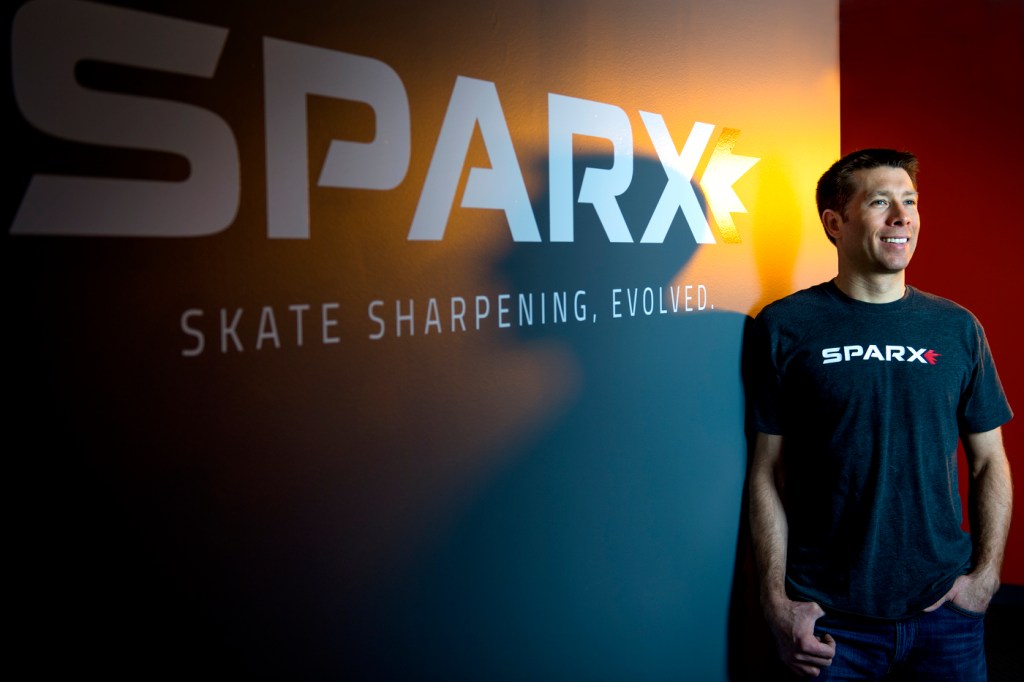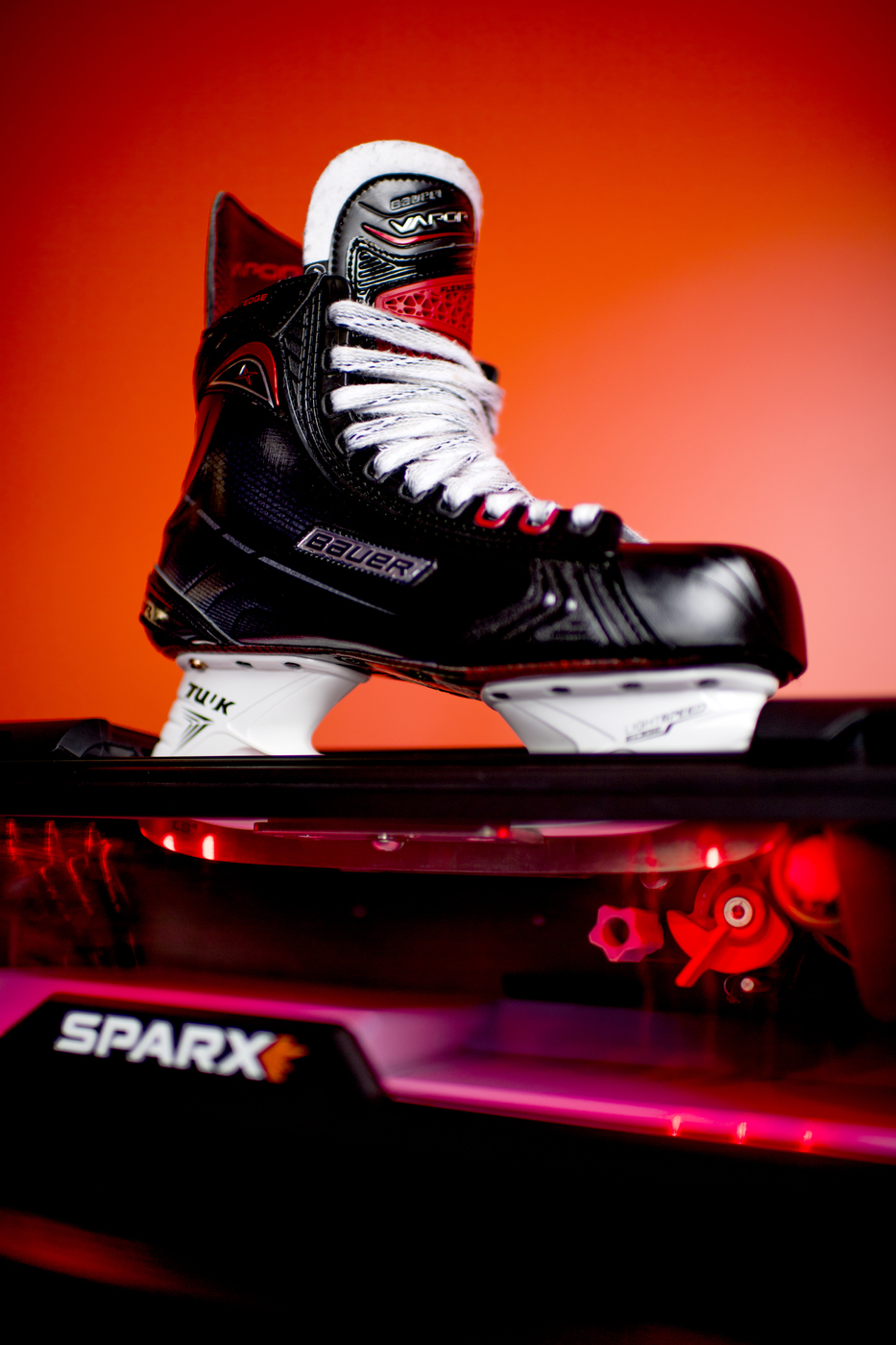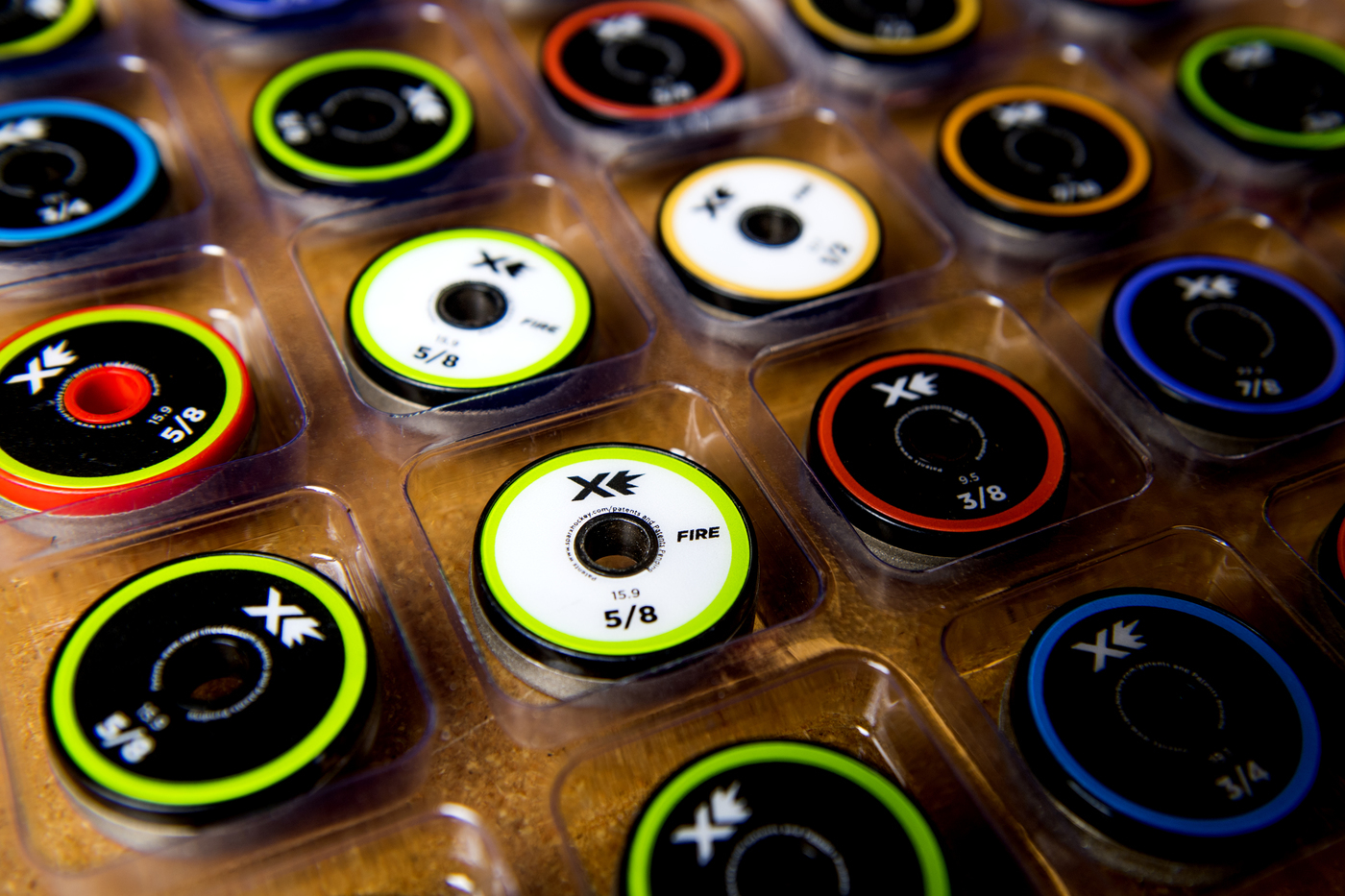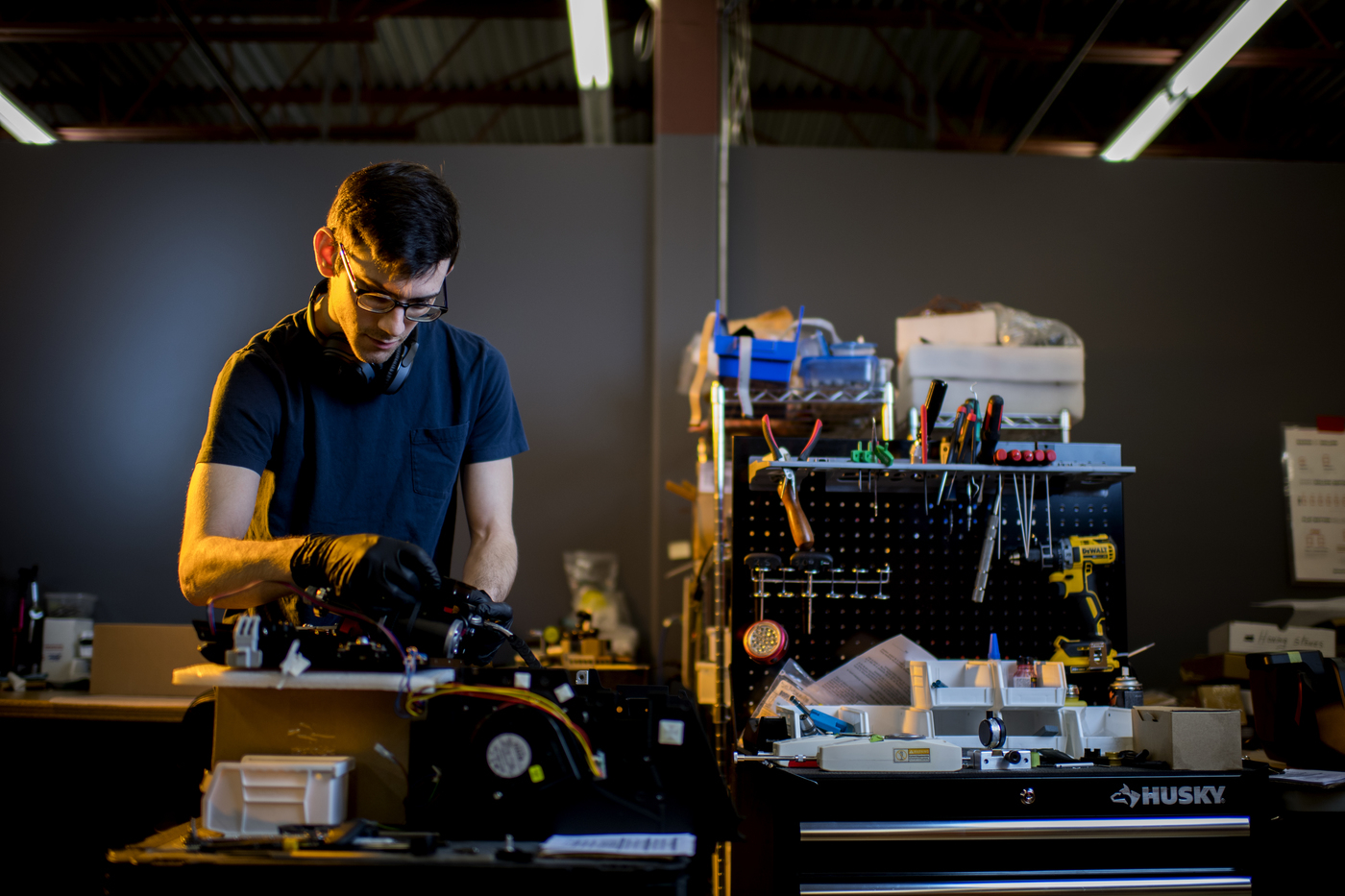From the NHL to the local rink, he’s helping ice hockey players stay sharp

Russell Layton had been laid off from his job. He had a wife and two young children to support. And he was sinking huge sums of money into a high-risk entrepreneurial vision.
When he would try to explain his invention—a machine that enables hockey players to sharpen their skates at home—he would be met with rolling eyes.
“Even my family members—and I love all of them—were questioning it,” says Layton, a Northeastern graduate in mechanical engineering. “Like, ‘Why are you doing this? It seems like you’re making it harder than it has to be.’”
Layton’s company has not only silenced the doubters; it has exceeded all expectations. Three years after its launch, Sparx has been ranked 56th on the Inc. 500 list of the fastest growing private companies in the U.S. Sparx skate-sharpeners are used by 25 NHL franchises and scores of other teams at all levels of hockey.
“We were all placing our guesses on a whiteboard, and nobody thought we were going to be that high,” Layton says. “So that was pretty cool.”
Layton grew up playing ice hockey, which meant routine and costly visits to sporting goods stores to have his skates sharpened before big games. When his son took up the sport, Layton began working nights and weekends in his garage to develop an at-home skate-sharpener.
Recognizing the need for help, Layton contacted his co-op adviser at Northeastern, Karen Kelley. She couldn’t immediately offer him student co-op because he didn’t actually have a business yet; but she was able to connect him with more than a half-dozen Northeastern seniors in mechanical engineering. Layton hired two of them, including Ivan Goryachev, who would stay on to become Sparx’s inaugural engineer when the company was officially formed.



“I looked at Russ as a visionary,” Kelley says. “He knew that he was going to need talent, and he always kept that line of communication open [with Northeastern]. It’s something that some engineers don’t get, but he has always networked the right way.”
The salaries of Layton’s first employees were adding to the “tens upon tens upon tens of thousands of dollars” that he was investing in his idea. They were making progress on the prototype.
Then, in October 2013, Layton was laid off from his full-time job with a medical equipment manufacturer.
“I had a mentor who was an entrepreneur back a long time ago,” Layton says. “I was telling him, ‘I should have done this when I was 22, before I had a house and cars and kids.’ He said, ‘If you take the leap and try it, and it doesn’t work, you can just go get another job that you don’t like. There are a thousand jobs like that.’
“It was pretty darn brilliant. I left that meeting realizing, here I am trying to hold onto this thing that isn’t all that precious—when what I really wanted to do was go branch out on my own and try to create something in a culture that meant something to me.”
Layton devoted himself to the new venture around the clock. He laid off one of his original workers and replaced him with a longtime colleague and fellow Northeastern graduate, Dan Beaudet. The three Northeastern mechanical engineers spent the ensuing year developing an “exoskeleton” version of their product in which all of the moving parts were visible, like a bicycle.
When it was shown to the members of Sparx’s new board, however, they insisted that the machine be redesigned inside-out. Layton and his team would need an additional year to enclose their skate-sharpener in a user-friendly way.
“We said, oh, no, we went completely in the wrong direction,” Layton says. “We had a year of work put into this and we scrapped it. It was like we’d made a turn 1,000 miles ago that we shouldn’t have made, and we had to back it all the way up.”
Another year later, in March 2016, they delivered their first 85 machines by air from the company’s production site in Malaysia. The onerous $200 cost of shipping each unit enabled them to meet a self-imposed deadline.
“When we first started the business, we had sold something like $300,000 worth of skate-sharpeners in the first month and a half through Kickstarter,” Layton says. “And we hadn’t even selected a contract manufacturer yet. It was a concept. It was a prototype. We didn’t know how the heck we were going to deliver this thing.”
The company employs 25 people at its warehouse in Acton, Massachusetts, including four Northeastern engineers (in addition to numerous co-ops over the years). Layton anticipates many more hires to come—especially as most of the buyers are individual players and their families.
“We’ve sold about 15,000 units, and there are millions and millions of households around the world that have hockey players in them,” says Layton, whose base product sells for $899. “It’s a process that is necessary to perform in the sport, in order to skate aggressively with confidence. For someone who is serious, it makes a lot of sense that they sharpen their skates before they go play hockey, like you would brush your teeth before you leave the house.”
There is no rolling of the eyes anymore.
For media inquiries, please contact media@northeastern.edu.






